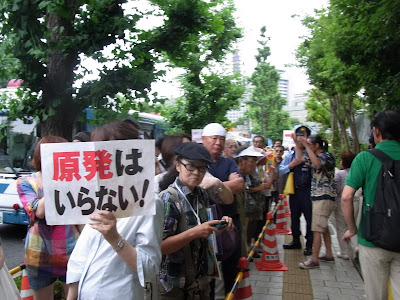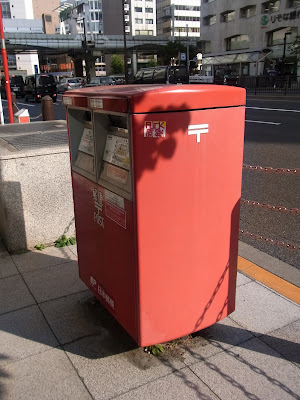Last night was hot. I woke up at 4.30 and it was 31 degrees inside.
Officially it was 27 degrees - we are in a heat island of apartment buildings where 2 aircon per apartment is the norm - never mind how hot that makes it outside...
I looked for the simple fan that requires no assembly,
bought when we had a mid summer visitor.
I couldn't find it. Finding it was this morning's priority....
The days are not so hot at the moment - 34 degrees or so - but the nights.....
I'm not the only one thinking it's hot yesterday, according to today's J
apan Today 4 people died of heat stroke and 900 were hospitalised yesterday.
The advice to avoid heat stroke -
The Fire and Disaster Management Agency is urging people to drink plenty of water, increase their intake of salt, make sure their rooms are well ventilated and use air conditioning.
It's a perennial rant of mine, but why anyone needs to up salt intake in a country with soy sauce as a staple, and a strokes as one of the highest causes of death, is beyond me... Aircon! Great idea, crank up the aircon and the nuclear plants at the same time...


















































